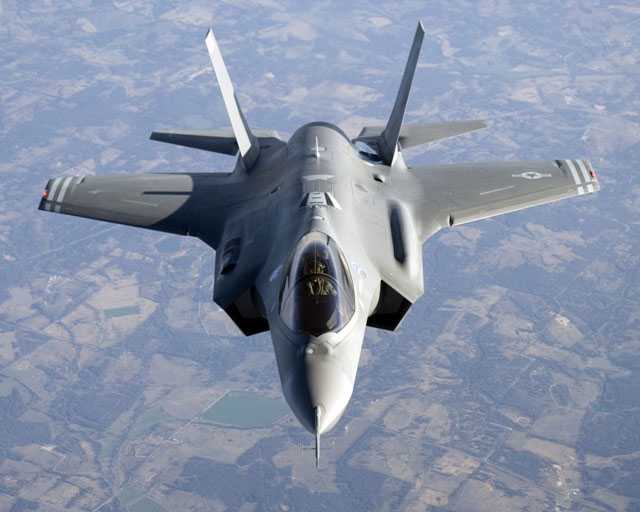ANKARA — Although Turkey has been one of the strongest partners in the multinational F-35 Joint Strike Fighter program, continuing financial and technical problems have created a more cautious attitude and interest in backup plans.

Officially, Ankara cites rising costs and technological issues for its Jan. 10 decision to postpone an order to purchase its first two F-35 fighter jets. But top procurement officials admit there is a “certain degree of psychological deliberation at work, too.” Turkey does not want to “stand alone in the dark’’ on the program, said an official with Turkey’s procurement agency, the Savunma Sanayi Mustesarligi (SSM).
“Due to the current state of the JSF … and the rising cost … it was decided to postpone the order placed on Jan. 5, 2012, for the two aircraft,” said the SSM. It also said the decision was made because the technical capabilities of the aircraft were “not at the desired level yet.”
After the initial purchase of the two jets, Turkey plans to order 100 units of the stealth fighter to replace its F-4 Phantoms and F-16 Fighting Falcons, according to the statement.
“It is true that the costs are rising, and we calculate that it would be safer for us to join other skeptical partners,” the SSM official said. “We think it is wiser to wait and see … to have a concerted position with the other partners.”
In December, JSF partner Canada threatened to reconsider its purchase of the F-35. Shortly after that, Australia said it would buy 24 Boeing F/A-18 Super Hornets if it saw any more delays in the JSF program.
European partners Britain and the Netherlands may delay their orders and question the rising costs. Also, Italy cut its JSF order by 30 percent last year as part of a broader reduction in government spending.
Lockheed Martin, which builds the F-35, said it still expects to sell about 3,000 of the fighters over the next 25 years, including 2,443 to the U.S.
Industry sources said any reduction in numbers will make individual planes more expensive because Lockheed will be unable to spread development and other costs as widely. The average cost per plane, pegged at $161 million, has doubled since Lockheed won the development contract in 2001. Since then, the U.S. has cut its total order by 400 planes.
Another SSM official familiar with the program said the country was not considering leaving the program.
“We have spent nearly $1 billion for this venture. The top management [at the SSM] told us to wait and see before we renew our first order. This is an indefinite postponement, but certainly not an intention to pull out.”
An Air Force officer said further delays could disrupt operational requirements and planning at the headquarters.
“In that case, we may have to sit down with the procurement people and devise a stopgap plan,” he said.
The senior SSM official ruled out buying the Eurofighter Typhoon but said Ankara could consider an F-16 purchase.
“We can compensate for rising costs with larger work share for our domestic industry. We also think that technical failures are not failures but just delays. If things get worse, we can consider an F-16 buy,” he said.
Turkey is one of nine countries that are part of a U.S.-led consortium to build the F-35 fighter. The others are Britain, Canada, Italy, the Netherlands, Australia, Norway and Denmark.
Turkey announced in March 2011 that it was placing its order for 100 jets on hold due to U.S. refusal to provide adequate access to the aircraft’s source codes. Ankara said that negotiations for access to the codes, including codes that can be used to control the aircraft remotely, had not yielded satisfactory results, and under these conditions, Turkey could not accept the aircraft. The issue remains unresolved.
In April 2012, Turkey suggested program costs could be reduced by outsourcing more production to Turkish defense and aerospace companies, which operate with lower labor costs compared with their counterparts in the U.S. and other partner countries.
via Turkey Says Cost, Problems Prompted JSF Purchase Delay | Defense News | defensenews.com.

Leave a Reply